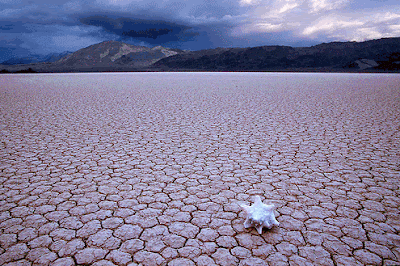
Last week, I came across an article published on Foreign Policy magazine’s website entitled “The New Myth About Climate Change” by Idean Salehyan, an assistant professor of political science at the University of North Texas.
According to the author, the thesis that global warming increases the probability of conflict – a proposition supported by United Nations Secretary-General Ban Ki-moon and even discussed in the United Nations Security Council as we reported on May 3rd 2007 – is a “myth”. Salehyan develops his argument around three points:
1. “there is little systemic empirical evidence that resource scarcity and changing environmental conditions lead to conflict”
Global warming occurs over a long period of time, and it is true that its effects have largely been subtle. The emerging scientific consensus, however, is that the most important effects of global warming are still to come (see reports by IPCC, the Intergovernmental Panel on Climate Change).
Is global warming likely to increase the probability of conflict? Yes, is what a growing chorus of experts thinks. There are several ways in which specialists believe global warming will impact on the likelihood of conflict. This includes border disputes, migration movements, energy and other resource shortages (notably, freshwater, cultivable land, crop yields and fish stocks), which may lead to societal stress and humanitarian crises, as the British government outlined in its UN Security Council paper.
Salehyan observes that, although the global warming process has already started, the global number of conflicts is falling; “if global warming causes conflict, we should not be witnessing this downward trend.”
I don’t agree with that. Salehyan’s linear way of thinking is simplistic and fails to comprehend the truly complex nature of conflicts’ dynamics. Conflicts are complex social phenomena that result from inter-relationships between several (if not myriad) factors. This means that, as global warming increases the chances of conflict, other factors – for instance, social, economic or political conditions – are at play and combine their effects to create a global trend.
Crucially, Salehyan has made his inference based on an apparent correlation between climate change and conflict during a particular period of time. Yet neither climate change (nor the number of conflicts) follows a linear trend. The number of conflicts can fall, but then abruptly rise again and we cannot predict what will happen based on assertions of past incidence of conflict. Moreover, while it is true that, historically, the incidence of inter-state war has fallen in the recent years, other forms of conflict have emerged.
2. “arguing that climate change is a root cause of conflict lets tyrannical governments off the hook”
Salehyan argues that “if the environment drives conflict, then governments bear little responsibility for bad outcomes.” This is misleading and absurd. Stating that climate change is a contributory factor in conflicts – like in Darfur, example cited in Salehyan’s paper – doesn’t excuse nor remove responsibility from governments.
3. “dire predictions about the coming environmental wars imply that climate change requires military solutions”
I don’t understand Salehyan’s logic here. “Dire predictions about the coming environmental wars” imply, in my opinion, that we must take measures to reduce global warming, and we need to start now to design solutions in order to anticipate the consequences of climate change and limit its humanitarian impact as much as possible.
Dire predictions instead strengthen the road for strong, effective international institutions and flexible, collective action, because no state can deal with the impacts of climate change on its own.
If, with this paper, Salehyan’s intent is to provoke controversy, he’s succeeded. But maybe it’s time to raise the level of the debate.
Aurélia Merçay
References
Idean Salehyan, The New Myth About Climate Change, posted in August 2007 on Foreign Policy and available online at http://www.foreignpolicy.com/story/cms.php?story_id=3922.
The UK’s concept paper and other documents from the UNSC discussion can be found here.
Photo by Oyzman retrieved from Flickr.com.
Wednesday 22 August 2007
Myths about Climate Change and Conflict?
Posted by Disarmament Insight at 10:49
Labels: climate change, conflict, global warming, humanitarian impacts, IPCC, Merçay, resource scarcity, Salehyan





0 comments:
Post a Comment